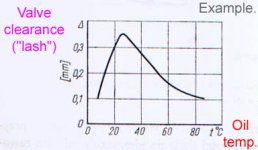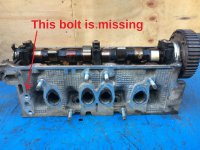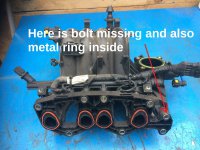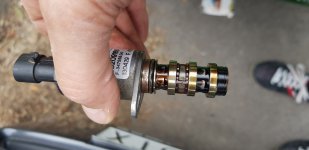Answer to your questions was probably in the numbers I asked for, and it was ignored.
Clearances and shim sizes, before and after adjustment.
Now, there is no way to tell. Diagnostic information is lost forever.
Look at the Guide, one valve (for example exhaust) can be way off (comparing to other 3), and that one will be more noisy/noisier. If there is a wear in the engine, sure it can be uneven, unequal between cylinders, valves, etc. No surprise here (it should be obvious).
Valve train noise is caused by three things, roughly speaking:
- clearances (but all of them, not only shim-to-lobe adjustable "gap") + wear,
- valve speeds/acceleration (depends on camshaft lobes geometrical shape/profile and its wear),
- stiffness (in general - in mechanical engineering, everything is a spring and will flex/twist).
In practice, "engine sound" is a combination between design (Fiats are a bit "noisy by design") and wear (natural + poor maintenance).
So one valve (with most wear) can literally crash into seat and/or bounce back, making noise.
And yes, if there's some kind of residue (carbon) on the valves/seats, and you'll remove it, clearance will change too (one of the reasons why valve adjustment can be multi-stage process - like once is not enough, you adjust it, and it still "ticks" - that's "normal", kind of).
Once again, suggested plan (rule out/fix one at the time):
- valve clearances, including carbon residue (possibly) messing up measurements/adjustments,
- lubrication and filtration (oil flow) issues, where filter is as (or more) important as oil (type, condition),
- VVT,
- timing,
- others (ignition, entire fuel system including evaporation/fumes, sensors, crankshaft/pistons).






